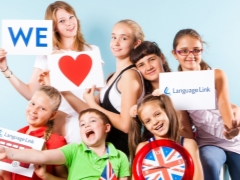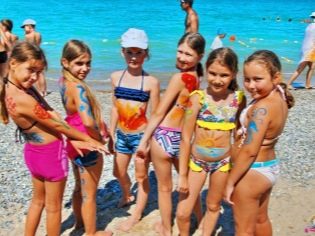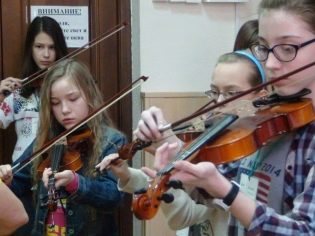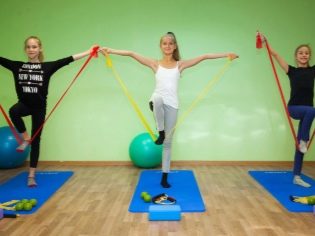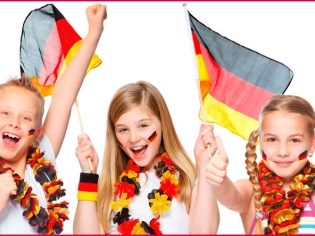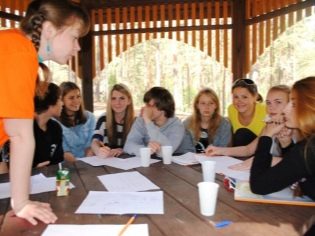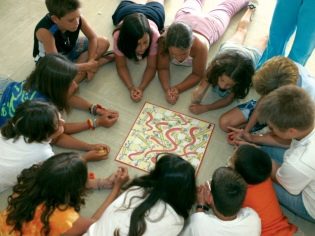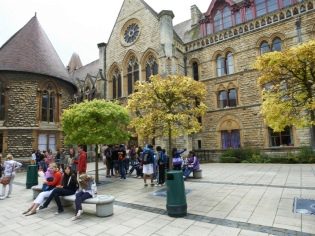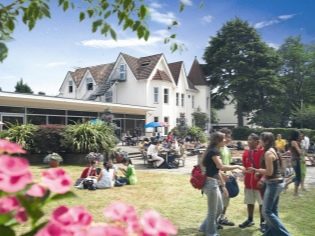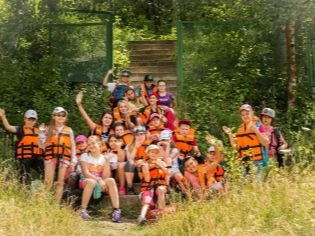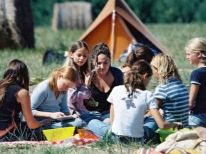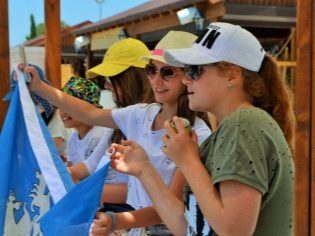How to choose a language camp for teenagers?
The domestic education system is increasingly criticized for too long holidays, they say, children abroad study much longer and this does not cause any mental overload. However, this situation is unlikely to change radically, otherwise you can get a real revolt of children. It remains to be done so that the child does not waste time in the summer, but receives useful knowledge right in the process of rest.
With mathematics, for example, it is unlikely to be done, but foreign languages can be studied even in the process of rest, for these purposes special language camps are created. However, not all of them are flawlessly good and suitable for everyone, because you should first understand how to choose the right institution.
What it is?
In recent decades, any self-respecting camp is trying to focus on specific learning specifics, so that children do not just relax on the beach, but receive some workload. This is, in a sense, a kind of interest club located on the seashore, in an ecologically clean forest or mountains: part of the time is spent daily on classes in a specialized subject, and all the rest of the time you can relax for your pleasure.
Some camps will become a paradise for sports enthusiasts (special football, basketball and other recreation centers), others should go to all fans of creativity (versions with an emphasis on dancing, drawing or music), and language camps, as the name implies, are designed to help learn or another language. Although they themselves are only a kind of summer recreation, they are also classified according to a number of signs.
Classification
Learning language
The first thing to understand is that usually such institutions do not constitute a multilingual academy, so each of them is devoted to learning only one particular language. In the conditions of our country, learning English is most often implied, however, there are options with other languages, primarily German, French and Spanish.
It should be noted that within Russia there are also such camps that are designed for the study of Russian by foreigners. The child there, of course, will also be interesting to go, because he will get the opportunity to talk with his peers from other countries who will tell a lot of interesting things. In a certain situation, one can communicate with them in their own language, however, anyway, at such a recreation center, new linguistic knowledge is usually not acquired.
Estimated guests age and language proficiency
Children of different ages need completely different conditions for recreation, not to mention the conditions for learning. Large centers can afford to train groups of all ages, however, often their specificity suggests that they recruit either very young children or teenagers. This difference is largely due to one or another location of the camp.
For example, a camp for children learning English may well be located in the Moscow region. The staff here, as a rule, is completely Russian-speaking, just by the rules of the center it is determined that communication takes place in the language of instruction whenever possible. This means that parents can safely give even a small child here, because employees in an emergency situation will easily understand the child and will be able to help him.
The program is certainly designed for those who are not very strong in English, and with the urgent need of a little guest, you can even send home ahead of time.
It is quite another thing if the parents have chosen a foreign center for the child. On the one hand, such a solution has a lot of advantages - and there will be much more impressions from the rest, and all the staff speak only the required language, forcing them to adapt and quickly assimilate the material in a relaxed manner.
On the other hand, such a choice puts forward several requirements to the child at once, which he may not meet.
- A trip to another country without parents in any case requires a certain independence. The staff will do everything possible so that the baby is good here, however, elementary sociability and autonomy must be present, otherwise you will not need to let the child go abroad, especially since returning from there ahead of time will be very difficult.
- Abroad for the sake of learning the language go precisely because there you will have to use your own knowledge all the time, even in informal communication with potential new friends. This means that the young tourist is already obliged to own a certain level of language in order to have some kind of launch pad. Absolute newcomers in a particular language do not reach foreign camps, with international staff and having a rest they simply have nothing to do there.
- When traveling abroad, a child must be asked whether he wants it or not.. If many parents send a child to any other camp, even of their own accord, then you should not do that here, because getting into a foreign, incomprehensible environment will become a real stress for a kid, from which he may be mentally tired even more.
Location
All language camps can be divided into domestic and foreign. Domestic are good comparative cheapness and orientation practically on all languages necessary for our compatriots, but from such leave you will not bring either bright impressions (habitual conditions, banal language lessons), nor tremendous knowledge (there is no language environment).
A trip abroad is more expensive, but all the disadvantages of the Russian camps at such recreation centers turn into advantages.
At the same time there are some typical directions for overseas holidays that are worth highlighting.
- Most often, Russians want to learn English, and it is predictably better to be taught in those countries where everyone speaks this language, therefore camps in England, the USA and Malta enjoy tremendous success. However, this language is not for nothing considered to be the main international means of communication - quality camps can be found, for example, in Finland or other countries.
- The situation is similar in German.But the choice of the finished items is much less. This language is spoken in large numbers in Germany, Austria and Switzerland - these countries should be oriented first of all. Good camps can be in neighboring countries like the Czech Republic, as the locals probably want to learn more about the language of the larger neighbor. However, there may be a lack of language environment.
- With french language the situation is even more complicated: it is spoken only in France, and partly in Switzerland and Belgium, although the latter uses a dialect very far from the standard literary norms.
- Spanish is spoken in Europe only in Spain, although there is no shortage of language camps. For those who are ready to go even to the ends of the world, there is a nice bonus - there will be camps with learning Spanish in America, especially in the southern states, where there are many immigrants from Mexico and other Latin American countries.
Among other things, it is possible to classify language camps by what exactly they are good for recreation. Location on any southern coast contributes to high-quality beach recreation, being in the mountains makes it possible to go skiing or snowboarding in winter, but the forest camp allows you to just rid your lungs for a while from the dirty city air.
In the end, it is necessary to deal with what children will do during their holidays.For example, language learning can be provided by boring lessons like school, and can be achieved through interesting communication with peers who do not understand Russian.
Since the camp needs not only to learn, but also to have a rest, it is important to pay attention to the entertainment program. For example, children may not be left to themselves: in the English-speaking camps they hold thematic shifts devoted to the work of Shakespeare or books about Sherlock Holmes. It is also possible to combine a linguistic program with a tourist or sports program.
How to choose a language camp for teenagers, see the following video.
